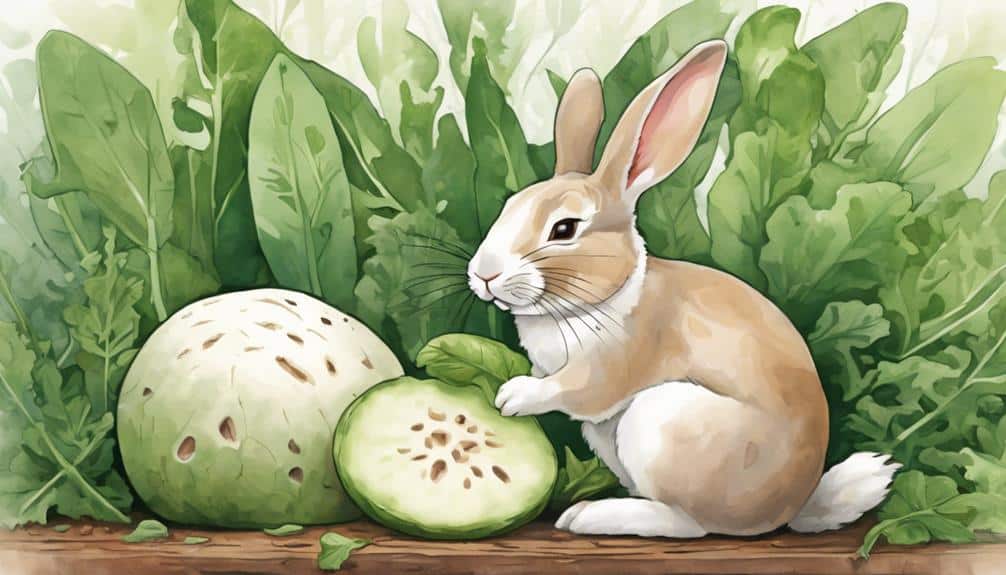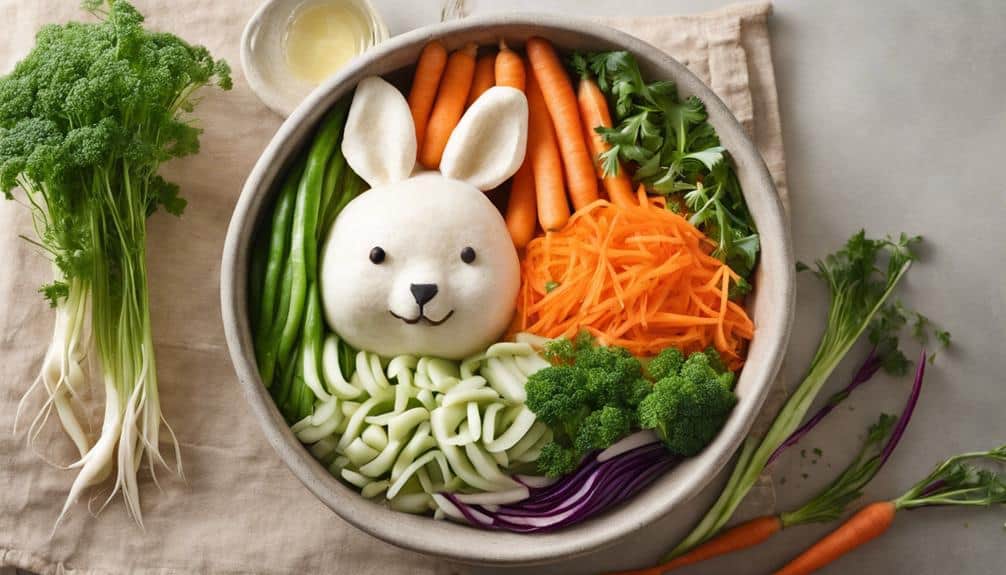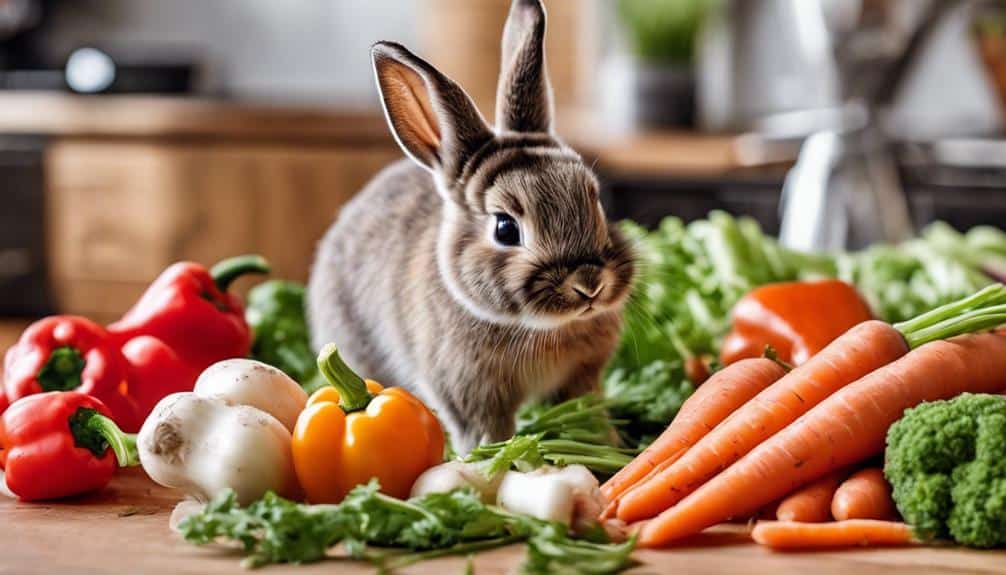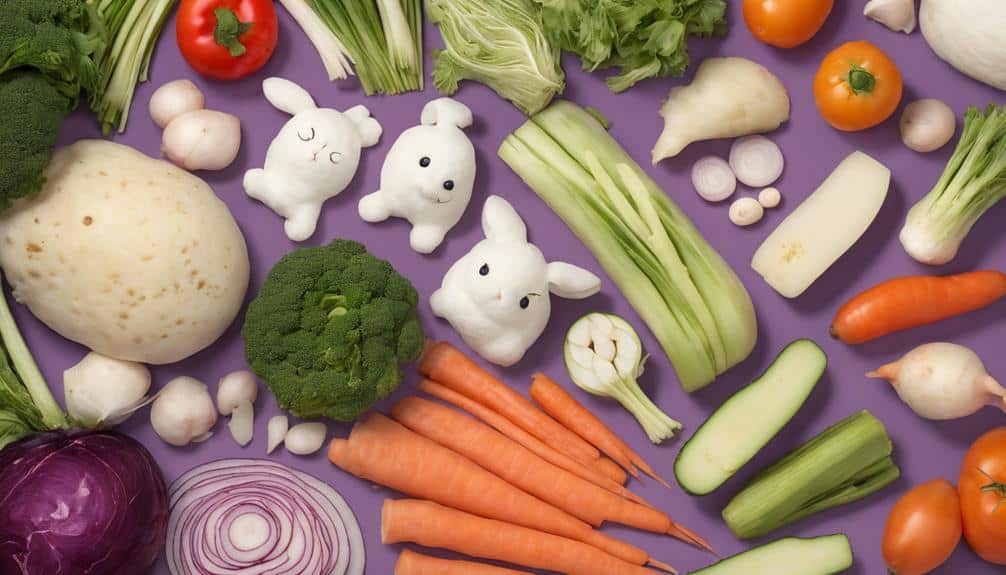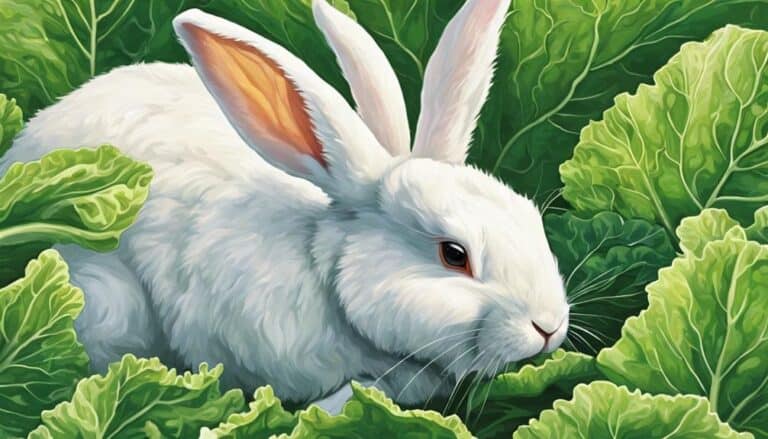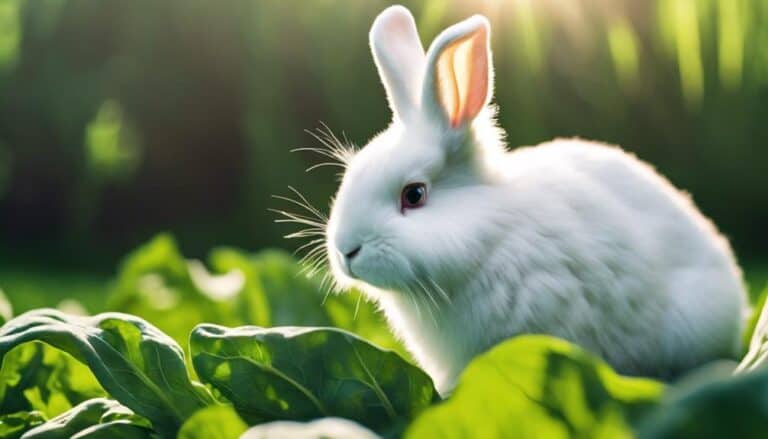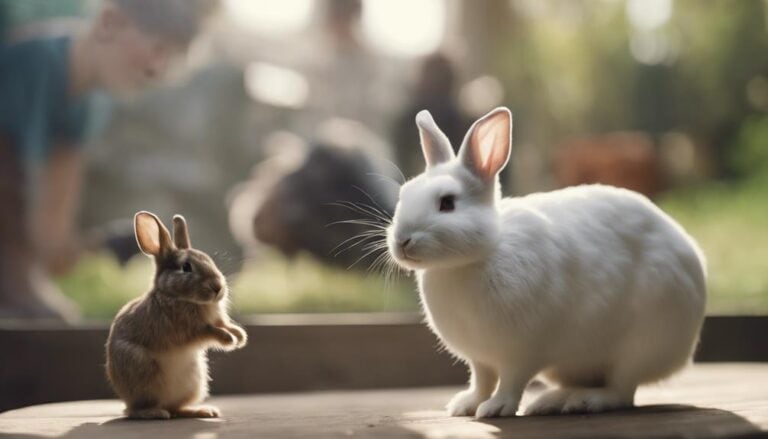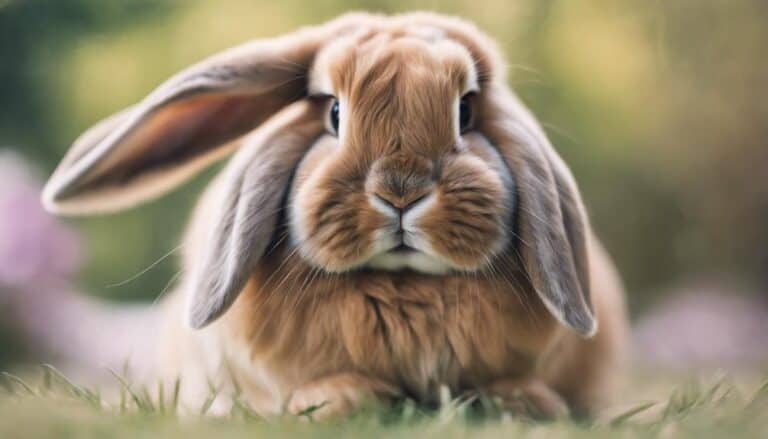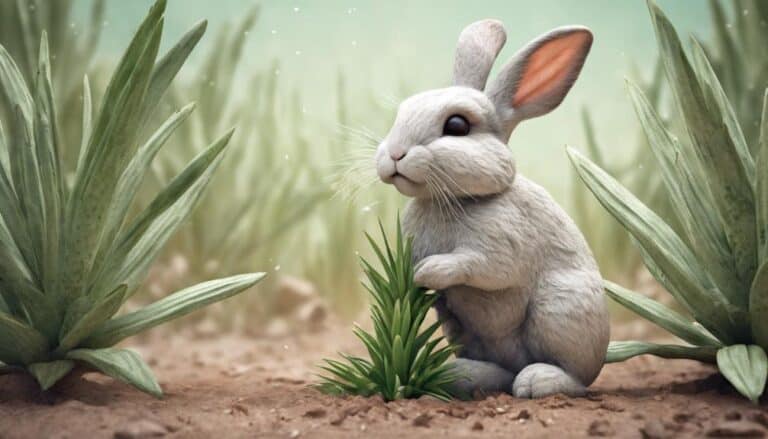Imagine your bunny hopping into a new culinary adventure, tempted by the crisp, juicy jicama.
But wait, can bunnies really munch on this unique root vegetable safely?
Bunnies can eat jicama in moderation. Jicama is a safe and healthy treat for rabbits, but it should be given in small amounts to prevent any digestive issues.
Before offering your furry friend a taste, understanding the nuances of incorporating jicama into your rabbit’s diet is crucial.
With potential benefits and risks to ponder, ensuring your bunny’s well-being while enjoying this treat requires careful attention.
So, let’s explore the intricacies of whether jicama is a suitable addition to your bunny’s menu.
Key Takeaways
- Jicama provides essential fiber and vitamin C for bunnies’ digestion and immunity.
- Moderation is crucial to prevent digestive issues or allergic reactions in rabbits.
- Always peel and cut jicama into small pieces; avoid toxic parts of the plant.
- Consult a vet for guidance, introduce jicama gradually, and monitor bunny’s health closely.
Jicama: Safe for Bunny Consumption?
When considering whether jicama is safe for your bunny to consume, be sure to prioritize their health by understanding the potential benefits and risks associated with this crunchy root vegetable.
Rabbits can enjoy the raw white flesh of jicama in moderation as it’s low in calories, carbs, sugar, protein, and fat. This root vegetable is rich in antioxidants, fiber, and vitamin C, which can aid digestion, enhance immunity, and combat cell damage in rabbits.
However, it’s important to offer jicama as an occasional treat, comprising about 10% of your rabbit’s diet to prevent nutrient overload. To guarantee safety, always peel the skin off, cut the flesh into small pieces, and refrain from feeding rabbits any toxic parts like the skin, stem, leaves, or seeds of the jicama plant.
Nutritional Benefits of Jicama for Bunnies
Jicama offers valuable nutritional benefits for your bunny. It provides essential fiber for digestion and vitamin C to boost immunity.
Including jicama in your rabbit’s diet can support their overall health and well-being.
Fiber for Digestion
High in fiber, jicama provides essential nutritional benefits for a bunny’s digestion and gastrointestinal health. Including jicama in your rabbit’s diet can aid in preventing constipation, promoting regular bowel movements, and supporting overall gut motility. The fiber content in jicama reduces the risk of gastrointestinal issues and helps maintain a healthy weight, preventing obesity. By feeding your rabbit jicama, you contribute to a balanced nutritional profile that supports their digestive system.
| Fiber Benefits for Bunnies |
|
| Prevents constipation |
|
| Promotes regular bowel movements |
|
| Supports gut motility |
|
| Reduces gastrointestinal issues |
|
| Aids in maintaining healthy weight |
|
Vitamin C for Immunity
Boost your bunny’s immunity with the vitamin C-rich benefits of jicama, supporting their defense system against illnesses and promoting overall health.
Jicama is a great source of vitamin C, providing 44% of the Recommended Daily Intake (RDI) in just one cup. This essential nutrient helps fight against cell damage and bolsters your rabbit’s immune system.
By incorporating jicama into your bunny’s diet, you can help guarantee illnesses and maintain their health due to its high antioxidant content. Additionally, the fiber in jicama aids in digestion, promoting a healthy gut environment for your furry friend.
Introducing jicama as an occasional treat can assure your rabbit receives the necessary nutrients, like vitamin C, to support their immune system effectively.
Incorporating Jicama in Your Bunny’s Diet
When introducing jicama into your bunny’s diet, be sure to offer it as a treat in moderation, constituting around 10% of their overall food intake. Rabbits enjoy the crunchy texture of jicama, and it can be a revitalizing addition to their diet. Below is a table outlining a simple way to incorporate jicama into your bunny’s meals:
| Day |
Morning |
Afternoon |
Evening |
| Monday |
Small slice of jicama |
Hay |
Pellets |
| Tuesday |
Pellets |
Small slice of jicama |
Fresh greens |
| Wednesday |
Fresh greens |
Pellets |
Small slice of jicama |
| Thursday |
Small slice of jicama |
Hay |
Pellets |
Risks of Feeding Jicama to Bunnies
Introducing jicama into your bunny’s diet requires caution due to the potential risks associated with its consumption, particularly the presence of rotenone in parts of the plant that can be harmful to rabbits.
The skin, stem, leaves, and seeds of jicama contain this toxic substance, making it essential for rabbit owners to only offer the raw white flesh in moderation. Overindulgence in jicama can lead to kidney damage or digestive issues in rabbits, adversely affecting their health.
Additionally, rabbits may develop allergies to jicama, resulting in various health problems that require attention. It’s important to monitor your rabbits closely for any adverse reactions after feeding them jicama, ensuring their well-being and promptly addressing any concerns that may arise.
Feeding Jicama to Baby Bunnies
For baby bunnies, it’s important to introduce jicama gradually and in small amounts to monitor for any adverse reactions. When feeding jicama to baby bunnies, follow these guidelines:
- Wait Until 12 Weeks Old: Baby bunnies shouldn’t be fed jicama until they’re at least 12 weeks old.
- Start Slow: Begin by offering small pieces of jicama to gauge their response.
- Prioritize Diet: Start baby bunnies on a diet of alfalfa hay and mother’s milk before incorporating jicama.
- Monitor Carefully: Watch for signs of allergies or digestive issues when introducing jicama to baby bunnies.
- Consult a Professional: Consult a veterinarian for guidance on including jicama in a baby bunny’s diet.
How Much Jicama for Bunnies?
To determine the appropriate amount of jicama for your bunny, consider their dietary needs and incorporate jicama as a limited treat. Eating jicama can be a delightful experience for your bunny, but it’s vital to protect your bunny’s health by feeding them in moderation. Here is a helpful table to guide you on how much jicama to offer your furry friend:
| Bunny Weight (lbs) |
Amount of Jicama (per serving) |
Frequency of Jicama Intake |
| 2-4 |
1 teaspoon |
Once a week |
| 4-6 |
1 tablespoon |
Once a week |
| 6-8 |
2 tablespoons |
Once a week |
| 8-10 |
3 tablespoons |
Once a week |
| 10+ |
4 tablespoons |
Once a week |
Preparing Jicama for Bunny Consumption
When preparing jicama for your bunny, remember to peel the skin off to eliminate any toxic parts before cutting the flesh into small, manageable pieces for easy consumption.
Here are some essential tips for preparing jicama for your bunny:
- Peel the skin off jicama to remove any potential toxins.
- Cut the flesh into small, bite-sized pieces that are easy for your bunny to eat.
- Avoid including any roots, leaves, or seeds when offering jicama to your bunny.
- Opt for raw jicama over cooked to provide dental health benefits to your rabbit.
- Store any leftover jicama in an air-tight container in the refrigerator to keep it fresh for future servings.
Following these steps will make sure that your bunny can safely enjoy the nutritional benefits of jicama without any harmful effects.
Jicama Leaves and Skins for Bunnies
Jicama leaves and skins pose a risk to bunnies due to the presence of toxic rotenone, making it important to avoid including them in your bunny’s diet. While bunnies can safely consume the raw white flesh of jicama in small amounts, it is critical to steer clear of the leaves and skins to prevent any potential health issues. Rotenone, found in jicama leaves, stems, and seeds, can be harmful to your bunny’s well-being and should be completely removed before feeding them this root vegetable.
To guarantee the safety of your furry friend, stick to providing only the edible part of jicama. Below is a table summarizing the key points regarding jicama leaves and skins for bunnies:
| Jicama Leaves and Skins for Bunnies |
| Risk Factor |
| Toxin Present |
| Preventive Measures |
| Safe Consumption |
| Well-being Assurance |
Is Jicama Safe for My Bunny to Eat If It Can Eat Grapes?
Yes, Jicama is safe for bunnies to eat if they can eat grapes. However, as with any new food, it’s best to introduce it slowly in small amounts to ensure bunnies and grapes safety. Jicama can be a healthy and delicious addition to your bunny’s diet, alongside other bunny-friendly fruits and veggies.
Frequently Asked Questions
What Vegetables Can Rabbits Not Eat?
You should avoid feeding rabbits high-carb and starchy veggies like potatoes. Unsafe options include iceberg lettuce, mushrooms, avocado, and onions. Stick to safe choices like broccoli, spinach, cilantro, and carrots. Excessive fiber can imbalance their diet, so be cautious.
What Foods Give Rabbits Diarrhea?
Overfeeding fruit treats and pellets can lead to diarrhea in rabbits. Be cautious with quantities and frequency of these foods. Guarantee a balanced diet to keep your bunny healthy and happy. Avoid potential tummy troubles by monitoring their intake.
What Is the Healthiest Food for Rabbits?
For proper nutrition, make sure a balanced diet for your rabbit. Dark leafy greens like kale and cilantro, along with hay like Timothy, are essential. Carrots can be an occasional treat, while fresh herbs like parsley provide added benefits.
Why Can’t Rabbits Eat Potatoes?
You shouldn’t feed rabbits potatoes due to potato toxicity. It can harm their digestion and health. Instead, offer safe treats like hay, leafy greens, and limited fruit to keep your furry friend happy and healthy.
Conclusion
In conclusion, jicama can be a crunchy and rejuvenating treat for your bunny, adding a burst of flavor to their diet. Remember to peel and cut the white flesh of the jicama before offering it to your furry friend to guarantee their safety.
Moderation is key to prevent any adverse effects, so enjoy this nutritious snack with your bunny sparingly like a rare gem in their meal repertoire. Your bunny will thank you for the tasty addition to their dining experience.
